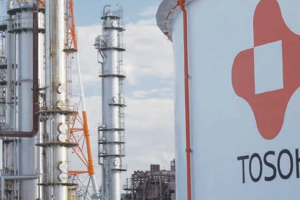November 23, 2024 – ExxonMobil has unveiled a significant investment plan, committing over $200 million to expand its advanced recycling operations in Baytown and Beaumont, Texas. This new venture, set to commence in 2026, promises to substantially boost ExxonMobil’s global plastic processing capabilities, contributing to environmental conservation efforts.
Through this investment, ExxonMobil’s advanced recycling capacity in Baytown and Beaumont is expected to increase by 350 million pounds (approximately 159,000 tons) annually, bringing its total capacity to 500 million pounds (around 227,000 tons) per year. Additionally, the company is actively pursuing the development of more advanced recycling projects across multiple manufacturing sites in North America, Europe, and Asia, with the goal of enhancing its global recycling capacity to 1 billion pounds (about 454,000 tons) annually by 2027.

According to ColorMasterbatchIndustry.com, ExxonMobil’s advanced recycling technology has already attracted clients from over 15 countries worldwide, spanning industries such as food packaging and pet food, with market demand continuing to grow. This technology, serving as a complement to traditional mechanical recycling, converts plastic waste into raw materials for the production of valuable products like fuel, lubricants, high-performance chemicals, and plastics. It also processes waste plastics that are not mechanically recyclable, reducing the likelihood of these materials being landfilled or incinerated. Notably, since its launch in 2022, ExxonMobil’s first advanced recycling plant in Baytown has processed over 70 million pounds (approximately 32,000 tons) of waste plastic, making it one of the largest advanced recycling facilities in North America.
However, just two months before announcing this investment plan, California Attorney General Rob Bonta filed a lawsuit against ExxonMobil, accusing the company of misleading the public about its plastic recycling efforts. Bonta alleged that ExxonMobil “engaged in a decades-long campaign of deception and bears significant responsibility for the global plastic pollution crisis.” He sought court orders requiring ExxonMobil to devise and fund emission reduction programs, cease deceptive advertising using terms like “advanced recycling” and “chemical recycling,” and take measures to prevent and mitigate further pollution and destruction of natural resources. In response, ExxonMobil issued a statement claiming that California officials have long been aware of issues with the recycling system but have failed to act, instead attempting to shift blame. The company expressed willingness to collaborate with the government to address the problem and keep plastic out of landfills, rather than being subject to litigation.
The announcement of this investment plan undoubtedly injects new momentum into ExxonMobil’s layout in the plastic recycling sector. As advanced recycling technologies continue to be promoted and applied in the future, there is reason to believe that the issue of plastic pollution will be more effectively addressed.














